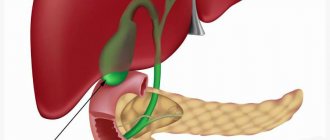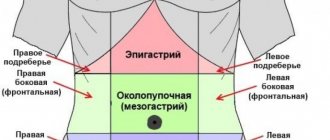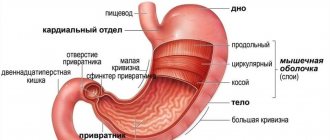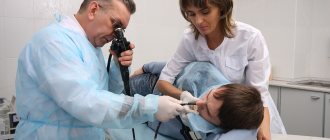Constant employment, haste, poor environment, the presence of fast food in the diet, uncontrolled, often unjustified use of medications (especially painkillers) lead to the fact that most people are now increasingly faced with diseases of the digestive tract.
Not only adults, but even children face this problem. It is important to respond to stomach pain in a timely manner and contact a specialist in this area. Which doctor treats the stomach and when it is necessary to urgently seek help - everyone should know this.
Which doctor specializes in the digestive tract?
A gastroenterologist is a doctor who treats the stomach. His responsibilities include establishing an accurate diagnosis by examining the patient, as well as prescribing treatment to eliminate the disease.
Consequently, gastroenterology is a science that studies the functioning of the human digestive organs, identifying the norm or the presence of pathological processes.
When a patient first encounters diseases of the digestive system, he often does not know who to contact with this problem. A therapist comes to the rescue, who will explain which doctor treats the stomach and give a referral to a more specialized specialist in this activity.
Gastroenterologists are divided into several types:
- coloproctologist: deals with diseases of the rectum, as well as diseases of the large intestine;
- hepatologist: specializes in the treatment of diseases of the liver, biliary tract, and gallbladder through diagnosis, examination of tests and interviewing the patient;
- proctologist: treats diseases of the rectum (often patients who have problems with hemorrhoids, polyps, anal fissures come to him).
A gastroenterologist-surgeon is another important specialist in this field. He treats patients who require surgical intervention due to pathologies that cannot be treated conservatively. The doctor performs operations to eliminate intestinal bleeding, abdominal hernia, intestinal obstruction, intestinal adhesive disease, etc.
What other doctors treat this diagnosis?
In addition to the therapist and gastroenterologist, those with characteristic pain are referred to the following doctors:
- oncologist;
- endocrinologist;
- proctologist;
- surgeon
What does an oncologist treat?
People are sent to an oncologist for stomach cancer. It is determined using ultrasound, endoscopic and histological examination, and biopsy. After a long examination, either a general practitioner or a gastroenterologist refers you to an oncologist. This type of cancer does not occur in a healthy organ. It is preceded by a precancerous condition.
Stomach cancer is a terrible disease, but there is a possibility of a complete cure for the disease. It depends on the stage of the disease.
For stomach cancer, the following types of tests are usually prescribed:
- ultrasound endoscopy;
- fluoroscopic examination;
- computed tomography;
- measurement of tumor tumor markers.
A competent doctor is able to prescribe quality treatment.
What does a proctologist treat?
The main area of research of a proctologist is diseases of the colon and intestinal sections. Thus, the scope of specialization of this doctor includes diseases of inflammatory, infectious, oncological and other nature.
If discomfort occurs in the intestines and duodenum, experts recommend immediately contacting this doctor. This approach will help stop the development of the disease and complications.
What does the surgeon treat?
A surgeon is a specialist who deals with cases that require surgical treatment. His competence includes injuries to soft tissues that violate the integrity of tissues. Surgeon is a specialty that applies to all areas of medicine. Therefore, this doctor can work in dentistry, neurology and other fields.
The following diseases are in the scope of research of surgeons:
- tumors;
- birth defects;
- diseases related to the therapeutic focus;
- various injuries;
- inflammatory diseases of soft tissues.
Thus, pain in the stomach and in all parts of the abdominal cavity is a rather dangerous phenomenon. At the first “bell” you need to quickly run to the doctor and conduct an examination. If there are problems, a general practitioner or gastrologist will immediately prescribe you treatment or send you to a doctor specialized in this area. The main thing is not to delay, and the disease will be defeated thanks to the medical intervention of specialists.
Pediatric gastrointestinal specialist
A child has a stomach ache, which doctor treats such diseases? It is logical that in addition to adult gastroenterologists, there are also pediatric ones. A child’s body is different from an adult’s, so such patients should be dealt with by a more specialized specialist. This doctor cares for children from birth to adulthood.
Currently, more and more children have problems with the gastrointestinal tract due to poor nutrition, consumption of harmful foods and drinks: chips, lemonade, crackers and much more that the child craves.
But it is worth noting that in addition to acquired diseases of the stomach, there are also congenital anomalies that require timely therapy and treatment: intestinal polyposis, tracheoesophageal fistula, esophageal atresia, stenosis and others.
The important point is that the disease detected in time is almost always cured, but the advanced form leads to the fact that it becomes chronic and permanent.
The most common reason for visiting a pediatric gastroenterologist with newborn babies is considered to be severe colic; this is often a temporary, passing phenomenon that requires taking medications that help the passage of gases and normalize the intestinal microflora.
What diseases do gastroenterology specialists treat?
Specialists in this category treat the digestive tract. A person may have problems ranging from the esophagus, where chewed food ends up, to diseases in the rectum. The patient should contact this specialist if problems such as:
- pathology in the work of the sphincters, which are located between the border of the stomach and esophagus;
- diseases of the esophagus: the presence of polyps, achalasia, dilated veins in the esophagus, diverticula;
- diseases in the stomach: ulcers, gastritis, papillitis, erosion, tumors, polyps;
- diseases of the pancreas: pancreatic necrosis, pancreatitis, cystic fibrosis, diabetes mellitus, cyst, oncology;
- pathology in the duodenum;
- diseases occurring in the spleen: cyst, abscess, malignant neoplasms;
- pathology of the rectum and anus;
- intestinal diseases: colitis, duodenitis, adhesions, enteritis, obstruction, ulcers, flatulence, tumors, worms, dysbacteriosis;
- various liver diseases, pathologies in the gallbladder and biliary tract: cholecystitis, hepatitis, Gilbert's syndrome, oncology, cirrhosis of the liver, curvature of the biliary tract.
When should you visit a doctor?
Having dealt with the question of which doctor treats the stomach and intestines, the patient should then know the specific symptoms that require a visit to the gastroenterology department. These symptoms include:
- heartburn;
- frequent belching;
- frequent persistent hiccups;
- sudden weight gain or rapid weight loss;
- severe gas formation, bloating;
- nausea that does not go away for a long time;
- bowel disorders (constipation, indigestion);
- the presence of persistent heaviness in the abdomen;
- bitterness in the mouth;
- pain that occurs on an empty stomach;
- specific odor from the mouth;
- pain that occurs when eating;
- coating on the tongue that has uncharacteristic signs (high density, yellow, white, large quantity);
- cramps in the intestines;
- changes in the color of stool not related to food intake, etc.
If a person does not have direct symptoms indicating gastrointestinal diseases, but has a rash on the body that is not related to an infectious origin, then a gastroenterologist can also help him. Having dealt with the question of which doctor treats the stomach, you should know that he also deals with patients who have metabolic disorders and improper absorption of mineral nutrients. The presence of this pathology is indicated by a sharp deterioration of hair, teeth, skin, rapid weight gain or loss.
Visit to a therapist or gastrologist
If you have already previously visited a therapist who has sent you to see a specialized doctor, then you need properly selected treatment, since gastritis and other gastrointestinal diseases are a very serious problem, and this should not be joked about under any circumstances.
Diagnostics
Well, you are already at an appointment with a gastroenterologist. Experts recommend using special expressions to describe your condition and pain. Pain in this area may be:
- piercing;
- cutting;
- pulling;
- aching;
- twitching;
- pushing.
In addition, pain in the stomach area is not always associated with digestion. These may be disturbances in the functioning of the liver or gall bladder. And only a doctor can determine what the problem is.
Surveys
To make an accurate diagnosis, it is necessary to undergo an examination. If a gastroenterologist diagnoses you at your first appointment, you need to think about whether this doctor is really a specialist in his field?
Usually, at the first appointment, the doctor will find out about your diet, the nature of stomach pain or other unpleasant sensations. Next, the specialist recommends undergoing a digestive system examination. After all, only a deep study of the problem can correctly diagnose and cure the body in a short period. Among the most popular examinations are:
- basic tests (blood, urine, etc.);
- fibrogastroscopy - examination of the stomach using an endoscope;
- biopsy of the stomach and intestines (if indicated);
- Ultrasound of internal organs.
At the first symptoms of gastritis or a stomach ulcer, a gentle diet and medications that can remove the signs of the disease are prescribed.
Repeat visit to the doctor
In addition to the main types of examinations, a specialist may prescribe additional types of symptomatic studies:
- Breathing test - the patient breathes into a special bag that is evacuated. After this, the air in the bag is examined for the presence of harmful microorganisms.
- Analysis of gastric juice - the analysis is taken using a specialized rubber device - a probe.
- X-ray of the gastrointestinal tract.
Stomach ulcer: symptoms and signs
If a person is bothered by stomach pain that wakes him up even in his sleep, heartburn and upset, as well as vomiting and anemia, then this indicates the presence of a stomach ulcer. Which doctor treats this disease? A gastroenterologist deals with this type of health problem. Experts note that most often an ulcer does not bother a person much until it completely destroys the intestinal walls, which leads to perforation, damage to blood vessels, and, most dangerously, internal bleeding. Such complications are extreme.
Stomach ulcers are not something to joke about; if left untreated, this disease can lead to a very bad outcome. Therefore, a person needs to be attentive to the symptoms indicating the presence of an ulcer:
- burning, aching pain in the abdomen, namely between the navel and chest;
- causeless pangs of hunger;
- dull pain in the gastrointestinal tract;
- bloating, belching.
In advanced cases, when a person has developed bleeding, he will feel constant fatigue and weakness. The presence of blood in the stool and vomit indicates severe bleeding. In this case, the stool will contain mucus and its color varies from black to red.
Gastritis: causes, symptoms
Inflammation of gastritis is promoted not only by poor nutrition and environment, but also by the presence of various irritants and bacteria in the human body.
Main reasons:
- Helicobacter pylori bacteria, which can settle in the human stomach.
- Environmental and chemical irritants that adversely affect the gastric mucosa. This includes cigarette smoke, alcohol, painkillers and antipyretics.
- Various viral infections that provoke attacks of gastritis.
Which doctor treats gastritis of the stomach and how? A gastroenterologist is a doctor with special skills and training in diagnosing, treating, and preventing diseases of the gastrointestinal tract. The risk group for these diseases includes people who abuse alcohol, smoke, regularly take painkillers and antipyretics, as well as those whose age is over 60 years.
Symptoms of gastritis include:
- frequent pain between the lower ribs and the navel;
- discomfort in the abdominal area;
- nausea, vomiting;
- loss of appetite;
- constant feeling of overeating, bloating, belching;
- in severe form there may be stool and vomiting with blood.
How does a doctor diagnose an ulcer?
A doctor treating a stomach ulcer uses the following methods for diagnosing the pathological process:
- general laboratory tests (clinical analysis of blood, urine, blood biochemistry);
- specific laboratory tests to detect Helicobacter pylori;
- FEGDS (“gold standard” for confirming the diagnosis of gastric ulcer);
- ultrasound examination of the abdominal organs;
- radiography with contrast (used less and less);
- study of gastric juice acidity.
The patient may also be prescribed a computed tomography scan if there is a suspicion of malignancy of the ulcer, that is, degeneration into cancer.
Features of gastroenterology
Which doctor treats the stomach and pancreas and when to seek help? Of course, if a person has previously suffered from a similar disease, he will immediately contact a gastroenterologist. But when he first encounters gastrointestinal diseases, he first goes to a therapist, who will refer him to a more specialized specialist. Which doctor treats the stomach and pancreas, and how does this happen? A competent gastroenterologist is currently in great demand. His primary task is to determine the most accurate diagnosis of the patient. To do this, the patient is prescribed a series of tests and studies. After the doctor is convinced of the correctness of the diagnosis, he prescribes treatment. It will depend on the specifics of the disease.
Diagnostics
Since the initial signs of many gastrointestinal diseases are similar to the symptoms of an ulcer, you will have to go to more than one doctor and get tested before the diagnosis is finally established.
To know for sure whether stomach problems are symptoms of an ulcer, you will have to undergo a gastroscopy procedure. It is performed on an outpatient basis. The doctor inserts an endoscope - a narrow tube with an optical device - through the patient's mouth into the stomach and examines the organs from the inside. You may also need a biopsy (a laboratory test of the stomach lining), ultrasound, or x-ray.
Treatment methods in gastroenterology
Treatment methods include:
- medicinal;
- physiotherapy;
- special diet;
- correct lifestyle;
- surgical intervention if necessary.
Which doctor treats the stomach if a person has signs of infectious poisoning? In this case, you should contact an infectious disease specialist. If the patient’s condition is serious, the patient is a child or an elderly person, then first of all it is necessary to call an ambulance and, if necessary, be hospitalized in a hospital.










